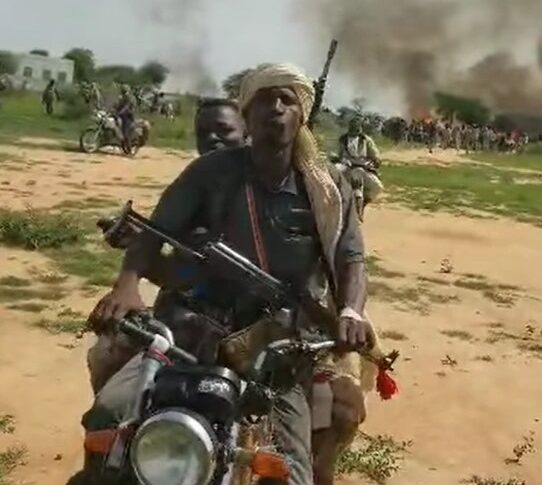Renewed tribal conflict in South Darfur leaves 13 dead
October 23, 2023 (NYALA) – Security tensions in the western Sudanese state of South Darfur escalated on Monday as renewed conflicts between the Salamat and Habbaniya tribes erupted in multiple areas of the state, resulting in the tragic loss of at least 13 lives.
This latest bout of violence flared up at the outset of the week, in the wake of a prior outbreak in August that had seen more than 500 fatalities and the destruction of over 20 villages. The Sudanese army and the Rapid Support Forces (RSF) have traded allegations regarding their involvement in exacerbating the tensions between these two pastoral groups, a feud that first ignited in August of this year.
In June, the Beni Halba Arab tribe, along with other tribes in South Darfur state, declared their support for the RSF in their conflict against the Sudanese army. The Salamat tribe, however, did not align itself with this stance, despite some of its members participating in the fighting alongside the paramilitary forces. This division has created a significant rift within the local communities of South Darfur.
Local sources, speaking to Sudan Tribune, reported that “approximately 13 individuals lost their lives on Monday, with four others sustaining injuries on the outskirts of Buram locality due to the conflict between the two tribes.”
Journalist Al-Fatih Bahloul confirmed to Sudan Tribune that intense battles have been ongoing between the Habbaniya and Salamat since last Saturday in the Um Mari area. These clashes have given rise to complex humanitarian conditions and a substantial displacement of villagers.
According to Bahloul, the conflict extended into the Baba area, near Buram, on Sunday and reached its zenith on Monday afternoon in the Um Sabikha area. The confrontations involved the deployment of heavy weaponry, motorcycles, and four-wheel-drive vehicles, leading to numerous casualties.
He additionally noted that this dispute between the two tribes is a recurring issue, characterized by mutual accusations of livestock theft and attacks on commercial convoys and vehicles en route to traditional gold mining sites.
Bahloul also pointed out the involvement of “unidentified military parties” who are allegedly exacerbating the conflict through the provision of substantial military equipment, four-wheel-drive vehicles, and specific weapons to the warring parties.
(ST)

